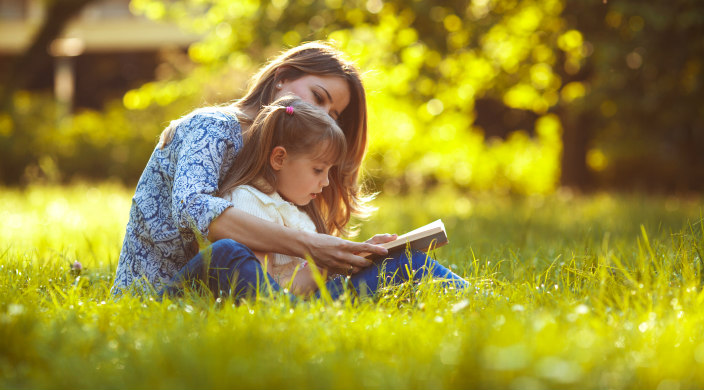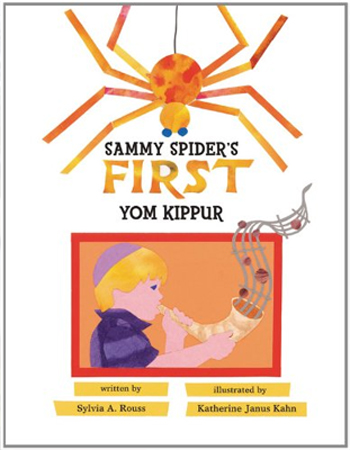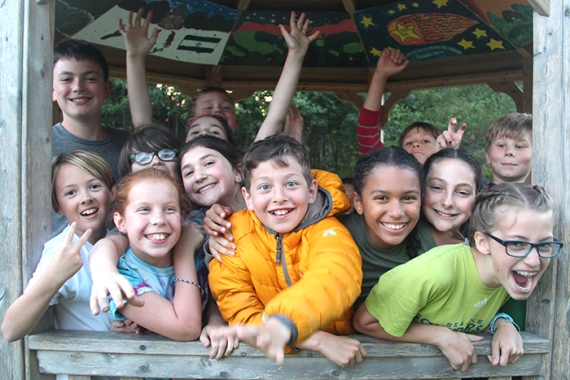
Yom Kippur and toddlers don’t seem to go together very well. On the most solemn day of the calendar, it can be difficult to figure out what to do with a young child who isn’t ready to sit in services all day.
The key to surviving Yom Kippur with a young child is all about preparation. Here are a few ways you can help your kids understand Yom Kippur, so that by the time it rolls around, they’re ready.
1. Learn about saying sorry.
PJ Library is a great resource of all Jewish children’s books. Some of my favorites are "Sammy Spider’s First Yom Kippur," which teaches kids about apologizing, and "The Hardest Word," which will speak to kids who sometimes find it difficult to say they’re sorry. Kids can also learn about apologies from the cast of Shalom Sesame. Once they begin to understand what the holiday is about, it can be an opening to discuss how your family observes.
2. Do a creative project together.
Family projects can help children better understand the themes of Yom Kippur.
- If your child is into paper dolls, make some all-white clothing for them in the spirit of the tradition of wearing all white on Yom Kippur. Discuss what wearing white represents and how that connects to Yom Kippur. You’ll be surprised how creative kids’ answers are!
- Create puppets to animate the story of Jonah and the whale, which we read on Yom Kippur. This is a great opening to talk with children about listening and changing behavior.
- Perform a mini-. Using washable markers, write or draw on a coffee filter all the things you would like to throw away from the past year. Then, float the filters in a bucket or small pool of water and watch your writing wash away. Use this opportunity to talk with your child about why we are serious on Yom Kippur: because we are thinking about things we did that weren’t so great, but we are happy because at the end of Yom Kippur, we get to start over.
3. Say "sorry" to one another.
It can be powerful for a child to hear their parent apologize, and it positively models the ways we can repair hurt. For example, ever since I can remember, my parents have called my sisters and me before Yom Kippur to offer an apology for anything they have done to hurt us in the past year, something they’ve done since we were young. You can also ask your child to name something they would like to do better in the coming year.
4. Give together.
In the Jewish tradition, tzedakah is a mitzvah, a religious obligation. At Yom Kippur, many Jewish families give money or food in the amount they would have eaten over the holiday to a food bank to help feed those for whom the fast isn’t optional. Work with your child to make a list of everything they eat during the day, then either go to the store together and pick out food to donate or work out how much you think it would cost and write a check to your local food bank. If you find that you or your child is enthusiastic about the idea of feeding the hungry, you can also go to a soup kitchen or a food pantry.
Doing this kind of prep work will help your child better understand what is happening on Yom Kippur.
Finally, in anticipation of the holiday, ask whether your congregation offers babysitting, special children’s programming, or family services. Your synagogue is likely eager to help young families connect, and these options are likely to be a better Yom Kippur fit for your child than sitting in adult service with you. If you do bring them to adult services, bring quiet toys and remember to take your kids outside the room if they need snacks. If you are not yet a member of a congregation, use our Find a Congregation tool to find one near you.
Perhaps most importantly of all, don’t feel guilty about getting a babysitter for your kids, not making it through the whole adult service, or only attending tot or family services. Feel empowered to do what is right for your family and what helps you create the kind of Yom Kippur experience you are looking for. May you and your family be sealed in the Book of Life.


